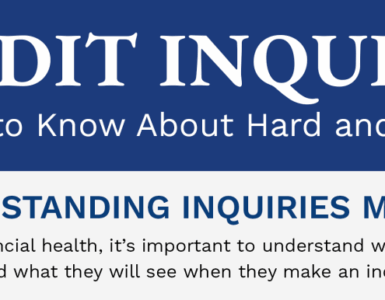Do One Thing: Call your credit card company, explain the situation, and ask if you can reopen a closed account. If you get a ‘no,’ ask to speak to a supervisor and politely plead your case.
Paid Off and Canceled
Maybe you recently paid off a big balance on your credit card and celebrated by canceling the line of credit. A few days – or weeks – later, you started to rethink that snap decision.
Closing is Common
It happens more than you may think. A report from 2019 found that more than 60 percent of adults surveyed in the United States had closed a credit card account, and many had done so without really understanding how it could impact their credit score. In the same survey, some 12 percent of more than 2,500 respondents thought it would improve their score. (In case you’re wondering, it won’t.)
How to Undo an Account Closure
Now, you may also be wondering if there’s any way to reclaim the account and the credit history that goes with it. Like so many other things, that really depends – on the credit card issuer and any policies they have in place for consumer lines of credit.
It Never Hurts to Ask
Call the Lender. If you’ve recently closed a revolving account and want to re-open it, act sooner rather than later. Call the lender of the closed account and ask if they can re-open the same account (with the same account number) and keep the original open date. That way, you won’t lose some of the credit history you’ve worked hard to build.
Talk to a Supervisor. If they say no, ask to speak to their supervisor and ask again nicely. If you have been a good customer, tell them. You can also ask if there are any other options for restoring the account without reapplying for credit.
Why You Shouldn’t Close Older Accounts
In most cases, it’s wise to steer clear of closing credit card accounts you’ve had for a while, even if you have paid them off and don’t plan to use them in the future.
The two main credit scoring agencies, FICO and VantageScore, use multiple factors to determine your credit score, the three-digit number between 300 and 850 that serves as a report card for how to handle your finances. Among those factors are your credit history, credit mix, and credit utilization ratio.
Credit Impact of Account Closure
Here’s what can happen to each of those things when you close an account:
Credit History
Typically, the longer your credit history the better. Lenders like to see that you have been managing your finances successfully over an extended period of time. That’s why closing an account can change what your history looks like on credit reports.
Limited Mix of Credit
Lenders also like to see that you can handle different types of credit well. Issuers value consumers who have several kinds of credit lines, such as a car loan, a mortgage, and revolving lines of credit including credit cards or store cards. Closing an account can limit your credit mix and potentially lower your credit score.
Increased Utilization Rate
Everyone who uses credit has something called a credit utilization ratio. It’s the ratio between the amount of credit you have available to you — if you add up all of your credit lines — and what you’re actually using (if you add up the balances on all of your cards). That ratio is best when it’s at 10 percent or less, but no higher than 30 percent.
Reduction to Available Credit
Another issue with canceling a credit card is that it reduces your available credit, which moves your ratio higher (and not in a good way). That’s why, even when you pay off the balance and maybe get a credit card with a better interest rate, you could be better off putting your old card in a desk drawer instead of closing the account.
Tips For Keeping an Old Card Current
Something else can happen if you don’t use an older credit card for six months or a year. The lender may close your account due to inactivity.
If you have an older card with no balance that you haven’t been using, consider the following:
- Set up an automatic payment using that card to cover a monthly bill.
- Pay off the balance in full so you don’t accrue interest.
The beauty of this strategy is that it keeps your card current, and maintains your credit history and credit mix to help your score stay in a solid range. You’re welcome!
With reporting by Casandra Andrews.






